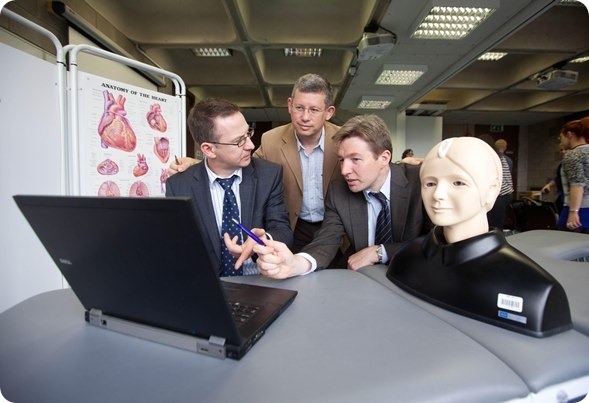A recent study of primary care support for youth mental health in the Mid West was undertaken by researchers at the Centre for Interventions in Infection, Inflammation & Immunity (4i), Graduate Entry Medical School, UL (www.4i.ie). The researchers surveyed physicians in Limerick, Clare, and North Tipperary and found mental health and family conflict represented the most frequent reasons why young people attended GPs. Depression, anxiety, family conflict, suicidal thoughts/behaviour and attention deficit hyperactivity disorder (ADHD) were the most common issues followed by substance abuse and antisocial behaviours. The majority of the participating GPs had encountered more than 250 such patients in the previous 12 months.

Professor Colum Dunne, Director of Research, Graduate Entry Medical School said; “This study has shown that relatively large numbers of young people may not always be aware of, or able to access, appropriate health services. GPs at the coalface of primary patient care are frequently encountering complex mental health issues in young patients and are attempting, as best they can, to care for these patients in a primary care setting”.
Of the young patients who presented with mental health issues, 10% were referred to specialist services, 4% were referred to non-specialist services and the remainder were not referred to secondary care but were managed by the GP.
The GPs surveyed identified the need for improved access to dedicated youth services including counselling, psychology and psychiatry as barriers to effective care of young mental health patients. The GPs based in regeneration areas highlighted a higher level of stress or anxiety amongst young people and that 436 young people in the previous 12 months would have benefited from access to currently unavailable services.
Professor Cullen, Chair of General Practice in UL, added; “This is one of the first studies to report data on the role of general practice in addressing youth mental health in Ireland. It complements the messages delivered at the Third National Research Conference in Ireland on Youth Mental Health hosted in September 2012 by the Graduate Entry Medical School, University of Limerick (UL) and the Association for Child and Adolescent Mental Health (ACAMH). The conference showcased research and innovation relevant to youth mental health. The current study further shows the importance of dialogue between young people, researchers and policy makers”.
The study ‘Primary care support for youth mental health: a preliminary evidence base for Ireland’s Mid-West’ by D Healy, S Naqvi, D Meagher, W Cullen & C Dunne was published in the Irish Journal of Medical Science. The study was undertaken by researchers at the Centre for Interventions in Infection, Inflammation & Immunity (4i), Graduate Entry Medical School, UL. 4i is the University of Limerick's newly-established research centre and brings together a multidisciplinary team of researchers focused on developing studies that impact health outcomes. A major focus of 4i is the translation of research findings into better patient outcomes and improved effectiveness, efficiency, and economics in healthcare provision. The study is available online here: http://www.ncbi.nlm.nih.gov/pubmed/23179665